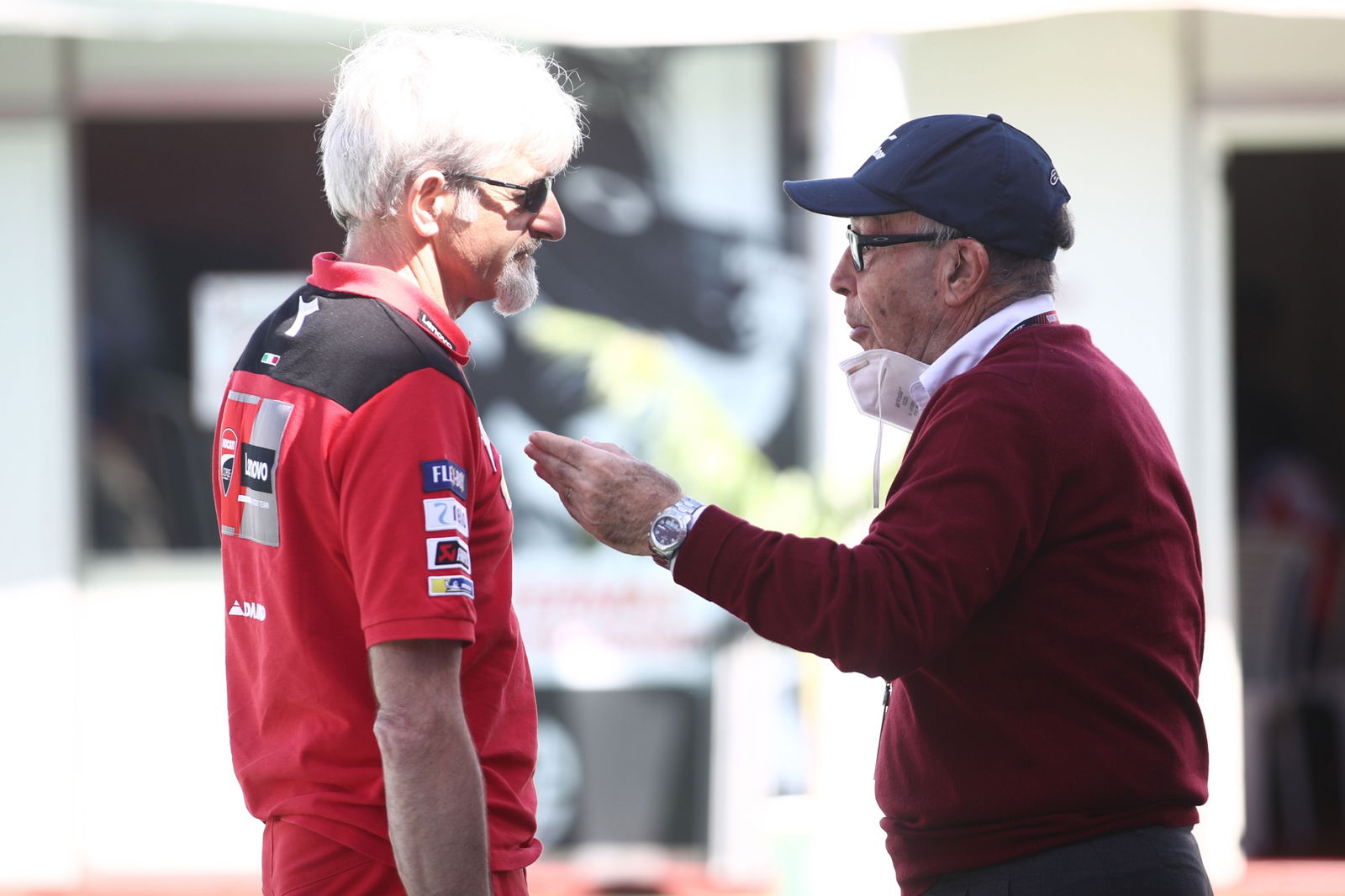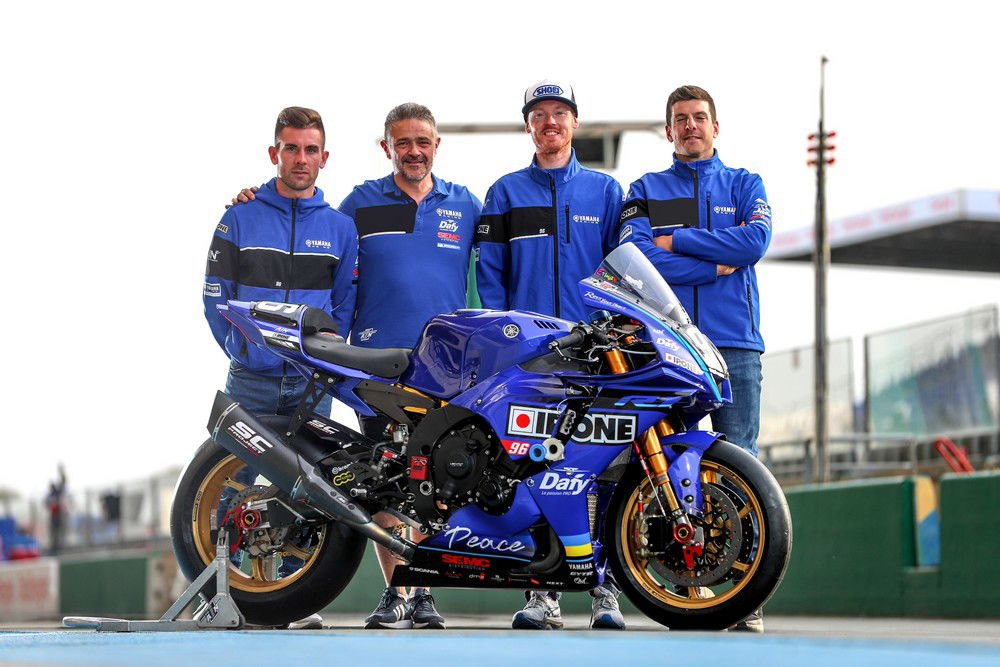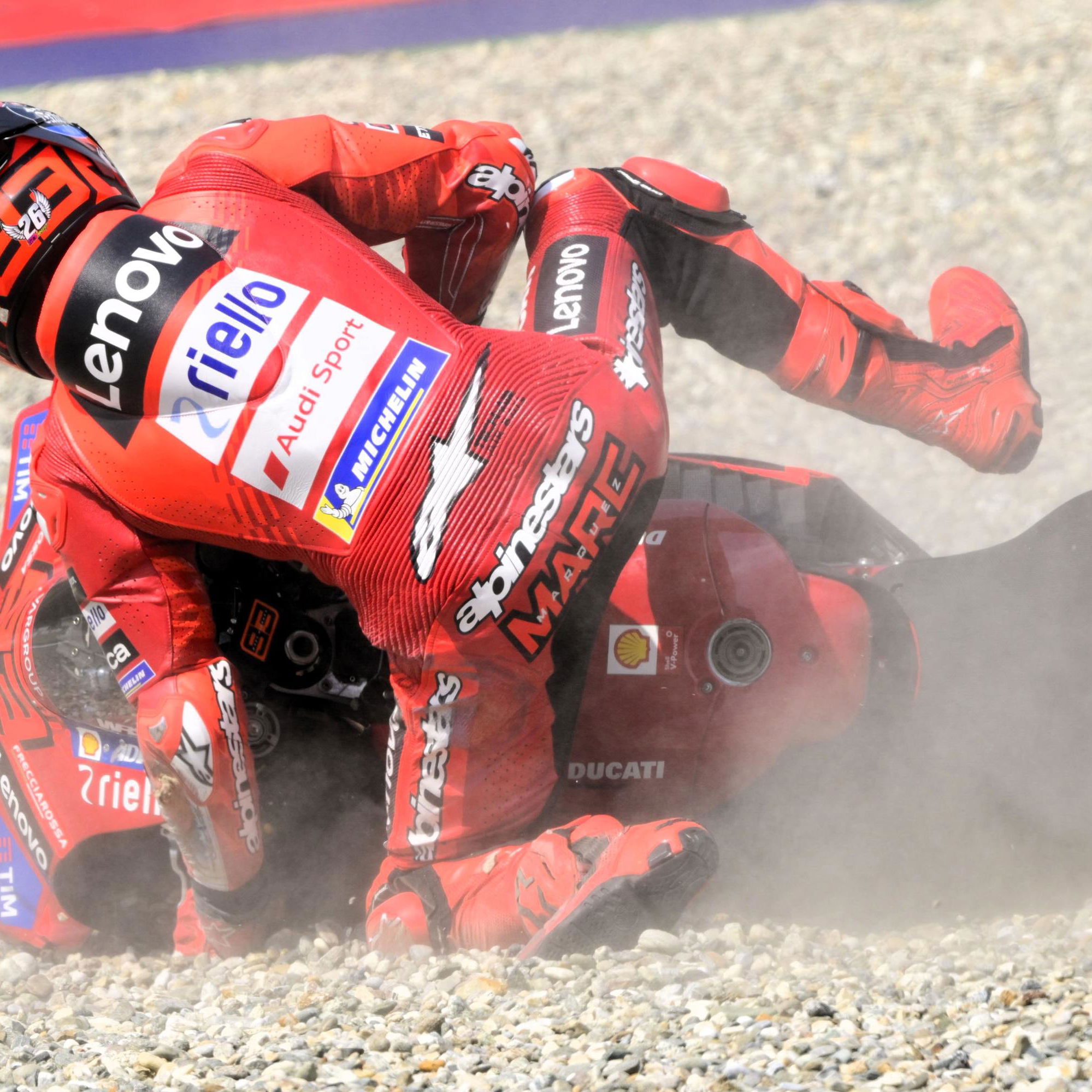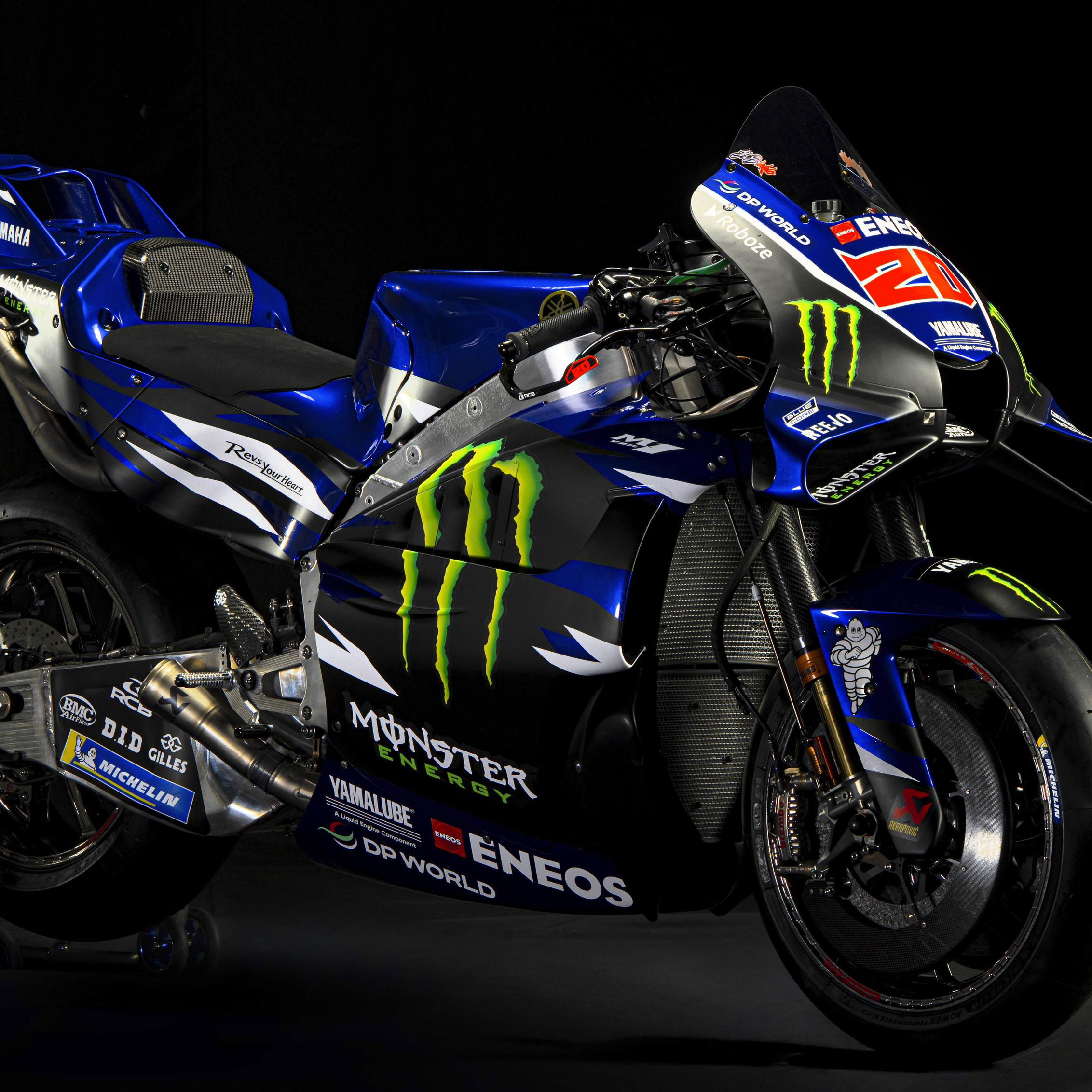Could two-day weekends be the future? 'Not better for the sport' - Johann Zarco

While Zarco and Oliveira agreed that ‘technically’ having three days is better than two, reigning world champion Quartararo was more upbeat about having a condensed two-day schedule.
Following the announcement on Thursday that freight delays would result in no MotoGP running on Friday, a first Argentina Grand Prix since 2019 is now hoping to get underway on Saturday with four MotoGP sessions lined-up.
- All Friday practice cancelled at the Argentina MotoGP
- MotoGP Argentina: Mechanics set for hard weekend; Enea Bastianini has 'nothing'
- Loss of front ride-height a 'pity for Ducati' - Johann Zarco
FP4 has been dropped which could hinder those in need of finding better race pace, while FP1 and FP2 will now take place shortly before FP3 and qualifying - two sessions that will run back-to-back.
So while the condensed schedule is going to make it tough on mechanics especially, could this be just what MotoGP needs as more and more races continue to get added to the calendar.
An advocate for trying the two-day weekend is Quartararo. The reigning world champion welcomed the thought of having more races, thus limiting each weekend’s track action.
Speaking in the pre-event press conference, Quartararo said: “At the end, it’s always the same; if your bike is working straight away then you can even have just one day. At the moment, as soon as you have a little bit of difficulty then you have Friday evening and the morning to think about it.
“It’s difficult to say, but it will be a great experience to have two days because if we have many more GP’s then it will be much more difficult (to have full weekends).
“From my point of view, I like to be moving around but it’s more for the mechanics and the families. But it will be a great experience to have just two days.”
2022 has already seen the largest race calendar in the championship’s history (21 rounds in total), but with more rounds being touted for the future, having a two-day weekend could have its benefits including reduced cost and a better spectacle?

These were two areas highlighted by Zarco as the Pramac rider said: “Actually, we were laughing with the team yesterday evening and saying that maybe two days can be enough.
“If you have experience then you can enjoy just two days. As Fabio [Quartararo] says, if you have the bike ready and you have all your references on the track, you can have maybe more advantage to have a great race.
“But to work and progress as a rider, but also work technically with the bike, it’s always better three days.
“If in the future it is two days then clearly they save money. It’s one night less in the hotels. But I think it’s not really good for the sport, yes, better for the show, but not for the sport.”
But while Quartararo and to some extent Zarco believe a two-day weekend could work, Oliveira had a more sceptical view: “I don’t know! I mean, I’ve never heard that suggestion in the past.
“I’ve never really thought about it. It will be a unique experience and hopefully we can get more ideas on whether that makes sense. But technically, for us to have three days is much better than two.”
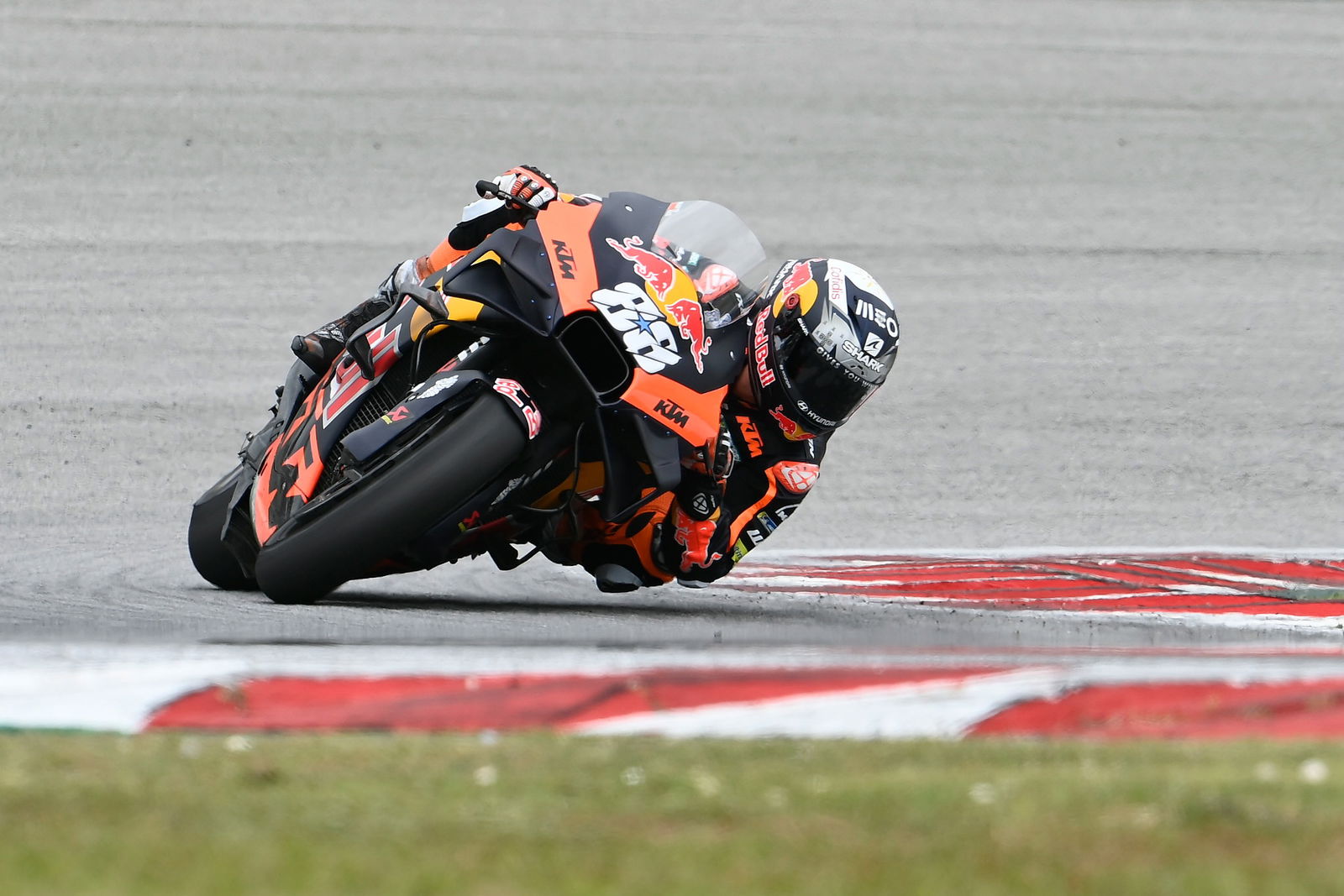
Unlike Zarco and Quartararo, who both have a full complement of bikes and equipment, Oliveira is still without one of his RC16 KTM machines.
The Mandalika race winner is currently fourth in the championship behind Quartararo, team-mate Brad Binder and championship leader Enea Bastianini, who himself is missing both his Ducati Desmosedici GP21 bikes.
A reminder that should MotoGP action get underway tomorrow, then it will do so without eight-time world champion Marc Marquez who remains sidelined by his ongoing diplopia problems.
